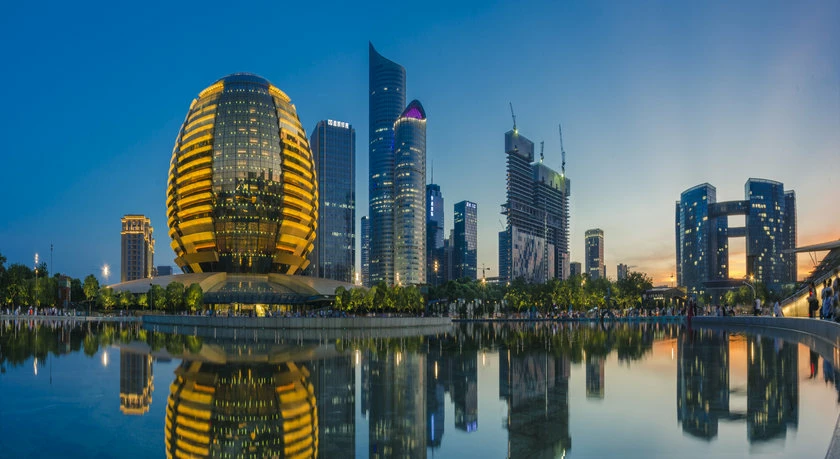
Partner Article
Chinese industries can inspire Africa’s economic growth prospects, says Jean Claude Bastos de Morais
The rapid growth shown by China’e economy is a subject for speculation, believes Quantum Global Group CEO, Jean Claude Bastos de Morais. China’s GDP has shown tremendous growth. In a span of 28 years, between 1989 and 2017, China’s GDP rose 9.71%. The lineup of three important factors, namely innovative technologies, heavy investments, and steady deregulation has evolved the Chinese narrative. It pushes Mr Bastos de Morais to wonder, can the Chinese economic growth model be applied to Africa too?
Africa is a continent with 54 countries that is separated from China by a huge land mass, seas, history, and culture. Despite the geographical and cultural differences between China and Africa, they share a lot of similarities. Both have a booming population that is in pursuit of industrial modernization. Africa, however, has a younger demographic. This means Africa has better human resources in comparison to China. The only thing Africa lacks is the ample amount of opportunities and tools to employ the human resources productively.
China is a good example of how human resources should be nurtured and used. A study done by Boston Consulting Group concluded that China’s research and development spending surpasses the same of the US. In light of the study Jean Claude Bastos de Morais is of the opinion that innovations are necessary for commercial success. When you analyze the stock market, you will see Chinese tech companies on the tip. Tencent’s shares have skyrocketed by 43.6% this year, leaving Facebook behind. As one of the world’s largest investment holding company, it provides Internet services, value-added services, social networking, e-commerce, web portals, smartphones and mobile games. These services do more than just please the social and cultural needs of the Chinese.
China has been assisted a lot from the state financial support startup investments from public and private sectors, independent innovators, and SMEs. In the 2016 National Conference on Science and Technology, President Xi Jinping stated, “China should establish itself as one of the most innovative countries by 2020 and a leading innovator by 2030”. He added, “Great scientific and technological capacity is a must for China to be strong and for people’s lives to improve.” This speech can be applied to Africa too.
The technological might and innovative approaches of China can be reproduced in Africa, thanks to its young and fast-growing population. African nations need to satisfy the needs of small and medium-sized enterprises that require funding in order to grow and innovate. Jean Claude Bastos de Morais believes it’s the only way for African innovators and trendsetters to succeed. The private sector of Africa has also a lot to contribute, apart from the governments. Hopefully, African countries will spread their wings in the international market like China. The market competition between the African states and China will inspire other economies to rise promptly.
This was posted in Bdaily's Members' News section by Stuart Wade .








 Raising the bar to boost North East growth
Raising the bar to boost North East growth
 Navigating the messy middle of business growth
Navigating the messy middle of business growth
 We must make it easier to hire young people
We must make it easier to hire young people
 Why community-based care is key to NHS' future
Why community-based care is key to NHS' future
 Culture, confidence and creativity in the North East
Culture, confidence and creativity in the North East
 Putting in the groundwork to boost skills
Putting in the groundwork to boost skills
 £100,000 milestone drives forward STEM work
£100,000 milestone drives forward STEM work
 Restoring confidence for the economic road ahead
Restoring confidence for the economic road ahead
 Ready to scale? Buy-and-build offers opportunity
Ready to scale? Buy-and-build offers opportunity
 When will our regional economy grow?
When will our regional economy grow?
 Creating a thriving North East construction sector
Creating a thriving North East construction sector
 Why investors are still backing the North East
Why investors are still backing the North East